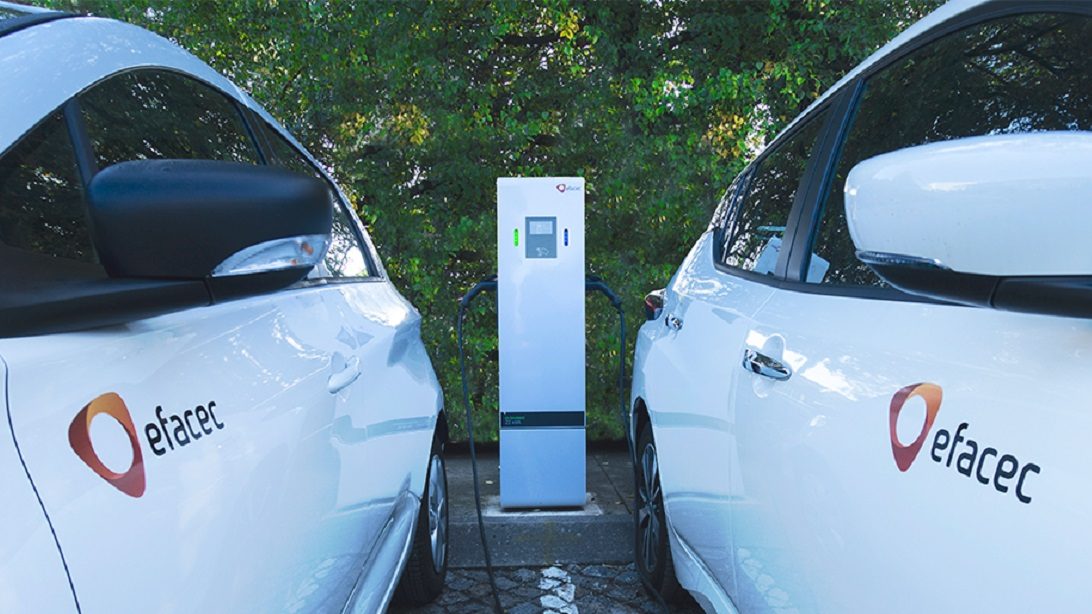Bank of Portugal rejects Banco de Fomento’s public guarantees to Efacec
Banco de Fomento gave €99 million in guarantees to Efacec, in violation of the law.
Banco Português de Fomento broke the law by granting total public guarantees of €99 million to Efacec, in two financial operations carried out by its subsidiary Norgarante, when it could only have given guarantees of up to €14.6 million. The Bank of Portugal notified Norgarante of the illegality and demands the regularisation of the situation, within 30 days, under the General Regime of Credit Institutions and Financial Companies (RGICSF). It was these two operations that allowed the viability of the company from nationalisation in July 2020 to its sale to DST last February, a deal that is dependent on approval from Brussels.
Bank of Portugal’s assessment is clear. In a letter dated March 3, to which ECO had access, sent to the board of Norgarante, the mutual guarantee company that provided public guarantees to Efacec to secure financing from private banks, the “subject” explains what is at stake: “Prior hearing – Issue of supervisory measures to Norgarante – Sociedade de Garantia Mútua, S.A.”. Several problems were pointed out to the company in which Banco de Fomento has a stake and directly manages credit lines to companies, some in terms of information, others in terms of violation of the law and the aforementioned code. The main one, which justifies the demand for corrective measures and the risk of administrative offences, is violating article 109 of the regime for financial institutions. What does the article say, beginning with the first paragraph?
- The amount of credit granted, in any form or fashion, including the provision of guarantees, to a person who directly or indirectly has a qualifying holding in a credit institution and a company which that person directly or indirectly controls, or is in a group relationship with, may not exceed, at any time and as a whole, 10% of the institution’s own funds.
Contacted, Norgarante said it complied with the law and said it will respond to the Bank of Portugal “within the time limit”, i.e. ten days. “The RGICSF rules were not ignored. Norgarante strictly followed the same procedures and understandings established for all the other guarantees it issued under the ‘Covid 19 Financial Guarantees’ line and the ‘Covid 19 Economic Support – Medium-sized Companies, Small Mid Caps and Mid Caps’ line,” he replies. And it clarifies that it will await the final decision from the Bank of Portugal after its pronouncement.
In this letter, to which ECO had access, the Bank of Portugal considers there has been a gross violation of the law. Why? Norgarante did not properly identify the so-called related parties, i.e. “all qualified, direct and indirect shareholders and the companies dominated by them”. Norgarante is a public entity, dependent on the State, and as is explained in the regime for financial institutions, “Article 109 limits the possibility of granting credit in any form or modality, including the provision of guarantees, to holders of qualifying shareholdings, held directly or indirectly, as well as companies that they control or are in a group relationship with”. Only that 71.73% of Efacec’s capital was nationalised, so it is also a public company that benefited from a guarantee from a public financial entity, Banco de Fomento, through Norgarante.
Efacec benefited from two loans from commercial banks, which only came about because they were guaranteed by the State. The first, in mid-2020, was for €70 million, of which 63 million was guaranteed by Banco de Fomento, and a second for 45 million, of which 36 million was guaranteed by another public guarantee. Hence the 99 million identified by the Bank of Portugal that were used to pay salaries and suppliers, keeping Efacec above the waterline. The first guarantee was approved when Norgarante was headed by Teresa Duarte, now a member of the company, and the second has already been approved by Henrique Cruz, who was the president of the former Instituição Financeira de Desenvolvimento (IFD), the body that was merged into Banco de Fomento, an institution chaired by Beatriz Freitas.
At the end of 2021, Efacec already had a debt of more than €210 million, when DST, the virtual winner of the reprivatisation tender, demanded that the industrial company had a maximum debt of €90 million. The state became a “controlling shareholder of a company that has a low level of debt”, to “solve a specific problem and allow the company to follow its path”, said the Minister of Economy, Pedro Siza Vieira, who was politically responsible for the entire process that led to the sale of the company, including the public guarantees from Banco de Fomento, now rejected by the Bank of Portugal, at the time of the nationalisation.
The Bank of Portugal, in the letter signed by two directors of the Prudential Supervision Department, details the timing of Norgarante’s decisions that violated the law.
- At a meeting on July 31 2020 (minutes no. 795), Norgarante’s Executive Committee approved the granting of guarantees to two companies of the Efacec Group, for a total amount of €63 million.
- At a meeting on December 10 2021 (minutes no. 872), Norgarante’s Executive Committee approved the granting of new guarantees to the Efacec Group, for a total amount of €36 million, bringing the involvement to €99 million. This operation was ratified by Norgarante’s Board of Directors on December 29 2021 (minutes no. 169).
- With reference to September 30, 2021, Norgarante had own funds of €146.4 million, whereby the limit imposed by article 109.1 RGICSF amounted to €14.6 million. In this context, the exposure to the Efacec Group exceeds the said legal limit.
The Bank of Portugal now demands the resolution of this case. It gave Norgarante (and, in practice, Banco de Fomento and the Minister of Economy, Pedro Siza Vieira) ten working days to respond, a deadline which ended on the 18th, but it was not possible to know if this had already taken place. ECO asked the Banco de Fomento if the ministers of Economy and Finance were aware of the violation of the law and if they had been informed of the Bank of Portugal’s decision. “We have no knowledge that there is any violation of the law, the guarantees in question remain valid,” an official source at the institution led by Beatriz Freitas told ECO. When contacted, the Bank of Portugal, the Ministry of Economy, the Ministry of Finance and Parpública, Efacec’s public shareholder, did not respond to ECO’s questions.
The supervisor requires resolution at two levels: On the one hand, “a corrective measure under Article 116-C” of the financial institutions regime to correctly communicate which are the so-called related parties and, within 30 days, “a detailed and scheduled plan of actions to be implemented to comply with the measure”. In addition, Norgarante also has 30 days – which are running – to present to the Bank of Portugal a schedule of actions to be taken “regarding the exposure” of 99 million to Efacec, under number 1 of article 116 C of the said general regime that regulates banking activity. In this paragraph 1, “the Bank of Portugal may require credit institutions that do not comply with the rules governing their activity, or for which it has information showing that it will not comply within a year, to immediately adopt the measures or actions necessary to resolve the situation. This will be the case of Banco de Fomento and Norgarante.
Norgarante, responding to ECO, said it “handled these operations as it does all others” and “decided in accordance with the strict procedures and criteria in force in the company”. But the prudential supervision department of the Bank of Portugal, led by Luís Costa Ferreira, fails the credit guarantee operations and also questions the evaluation mechanisms of the second operation, worth €36 million. “The risk analysis supporting the decision of the Executive Committee [of Norgarante] assumed a single scenario, namely the completion of the reprivatisation of the Efacec Group, not having considered alternative scenarios and their respective impacts, such as, for example, postponement of the reprivatisation or possible liquidation of the company, which would allow a broader assessment of the consequences of that decision.” In addition, the preliminary decision of the central bank reads, “the process of approving the operation did not take into account the best market practices, to the extent that the documented results of the assessment of the customer’s solvency do not allow justifying the proposal for approval of the request for issuance of a guarantee”, that is, Efacec does not present a balance sheet that justifies the public guarantee.
The government, it should be remembered, approved in the Council of Ministers on 24 February the sale of 71.73% of Efacec to DST, but the deal is dependent on the approvals of the European Commission (Directorate-General of Competition) and presupposes a new operation involving Banco de Fomento, as ECO revealed first-hand.
Efacec will start by reducing its capital, and then the State will increase it by €60 million with quasi-equity financial instruments. This operation, called Operation Harmony, will be followed by a capital increase of €81 million for DST. Finally, prior to signing the contract (pre-closing), Banco de Fomento will provide a refinancing line. A line that, as ECO advanced, will refinance the company’s debt by one hundred million euros, at 25 years, with an interest rate of 1.25%, convertible into non-voting preferred shares.


